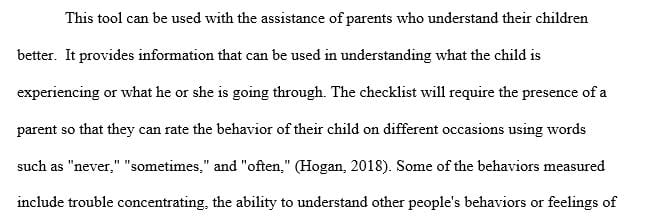Explain 2 types of assessments you can use to open this client to your services
Psychopathology db 4
You are working in a new youth-oriented (adolescents 13–17 years of age) agency that has hired you to complete initial assessments. It is up to you to develop the tool you will use to evaluate new clients for treatment in your facility. Your boss asks you to provide 4 styles of assessment: one to use on the client’s initial visit; one for use in gathering psychosocial history information; one to diagnose and refer clients for treatment; and lastly, he asks you to put together a format for evaluating risk assessment for juvenile inmates who are ready for placement in your facility’s group home.
Your boss asks you to see an adolescent, 13-year-old client who is considered to be a low risk and is starting to commit petty theft.
Address the following:
Explain 2 types of assessments you can use to open this client to your services.
Explain how you would utilize each of the assessments.
Identify 1 benefit and 1 potential drawback that each assessment provides.
How might your client react to this assistance, and how might you convince him to give therapy a try?
Answer preview to explain 2 types of assessments you can use to open this client to your services
APA
543 words


